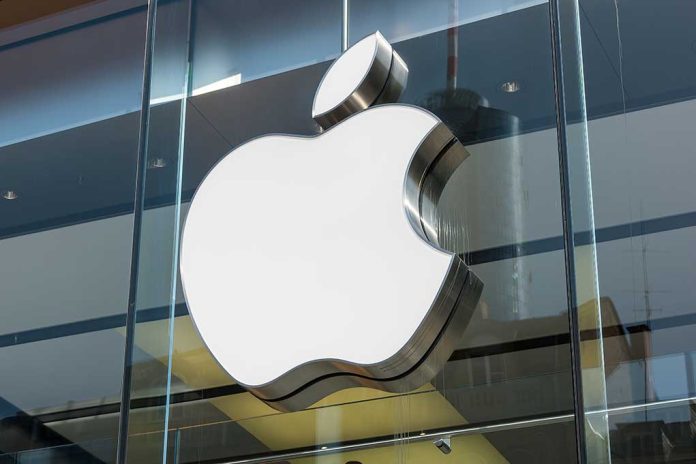
Apple’s new hiring initiative focuses on prioritizing underrepresented demographics, sparking debate on the merits and potential issues of enhanced diversity and inclusivity in the corporate world.
At a Glance
- Apple is committed to creating a culture of inclusion and increasing representation across teams.
- SignTime was developed for deaf and hard-of-hearing customers and employees.
- The New Silicon Initiative partners with HBCUs to create opportunities for Black students in hardware technology.
- Apple’s increased diversity efforts include engaging with veterans and supporting veterans’ transitions.
A Commitment to Diverse Hiring Practices
Apple has unveiled a new initiative aimed at enhancing diversity and inclusivity within its workforce. This move shifts focus from traditional hiring practices, predominantly white men, towards underrepresented demographics. Apple’s website states the company is steadfast in creating a culture of inclusion and boosting representation across its teams.
Tim Cook, Apple’s CEO, highlighted the significance of this initiative, stating, “Inclusion inspires the best work from everyone and allows Apple to attract top talent from around the world.” This global movement has led to the development of programs like SignTime, which offers sign language interpretation for deaf and hard-of-hearing customers and employees. Further, Apple focuses on the inclusivity of its design in its products and services, bearing diverse user needs in mind from inception.
Apple hired a new diversity chief for the fourth time in recent years as the iPhone maker seeks to make its workforce more inclusive https://t.co/UVLVOime0Q
— Bloomberg (@business) May 22, 2024
Supporting Marginalized Communities
Apple’s heightened focus on diversity also extends to cultural moments such as International Women’s Day and Pride Month. These events serve to foster inclusion and propel the narratives of diverse individuals. Additionally, Apple operates 78 Diversity Network Association (DNA) chapters with approximately 59,000 members worldwide.
“We felt strongly that we needed to solve the question, ‘How can we facilitate communication with our deaf and hard-of-hearing colleagues and customers in the way that works best for them?’” – Sarah Herrlinger, Global Accessibility Policy and Initiatives
Apple’s partnerships with historically black colleges and universities (HBCUs) via the New Silicon Initiative (NSI) seek to create valuable opportunities for Black students pursuing careers in hardware technology. Moreover, Apple collaborates with ASAL Technologies in the Palestinian Authority to recruit engineers, bolstering diversity within the hardware technology sector.
Hasbro and Apple are leaders in fostering diverse, inclusive workplaces. This approach builds strong connections and support among employees (Corporate Social Responsibility Journal). #Diversity #Inclusion https://t.co/FUddmpuDEz
— Louis Carter (@louislcarter) July 27, 2024
A Scholarly Debate on Inclusivity
Although Apple’s initiatives receive praise for their progressive stance, they have ignited debate on the inclusion-versus-exclusion paradox. Some argue Apple’s prioritizing of underrepresented demographics is a form of reverse discrimination. This perspective raises questions about whether such efforts hinder the principles of meritocracy.
In an era where companies are increasingly being held accountable by some for their role in promoting diversity, equity and inclusion while simultaneously considered ‘woke’ by others, Apple is doubling down on its commitment to its REJI.
Moreover, unionized Apple retail workers in Oklahoma City are negotiating their first contract, emphasizing the need for transparency in hiring and pay raises. This underscores criticisms, including that Apple’s diversity data may be misleading. Reports contend that Black and Hispanic workers have been placed disproportionately in lower-paying positions since 2014, highlighting a disconnect between stated goals and practiced reality.
“Right now, the parameters for advancement at Apple are unclear. You can apply for a job you are qualified for on paper, but get turned down due to internal metrics that we have no insight into. We then aren’t given guidance on what we need to do to meet the bar for promotion. We want to make Apple a place where we can all make a sustainable living and build our career and for that reason we are fighting for transparency on hiring, promotions, and pay raises,” said Charity Lassiter, Technical Expert and member of the Apple Retail Union-CWA.
Apple announced a new partnership with the My Brother’s Keeper Alliance (MBKA) to empower Black and Brown youth © with a hope to counter systemic biases that have traditionally stifled such groups. Additionally, the Racial Equity and Justice Initiative (REJI) – launched in 2020 – signifies Apple’s pledge of over $200 million to support historically marginalized communities.
With significant momentum behind its diversity and inclusion initiatives, Apple’s efforts are set to reshape the corporate landscape. The long-term results of these initiatives will provide a clearer understanding of their impact on the tech giant’s culture and operational success.





